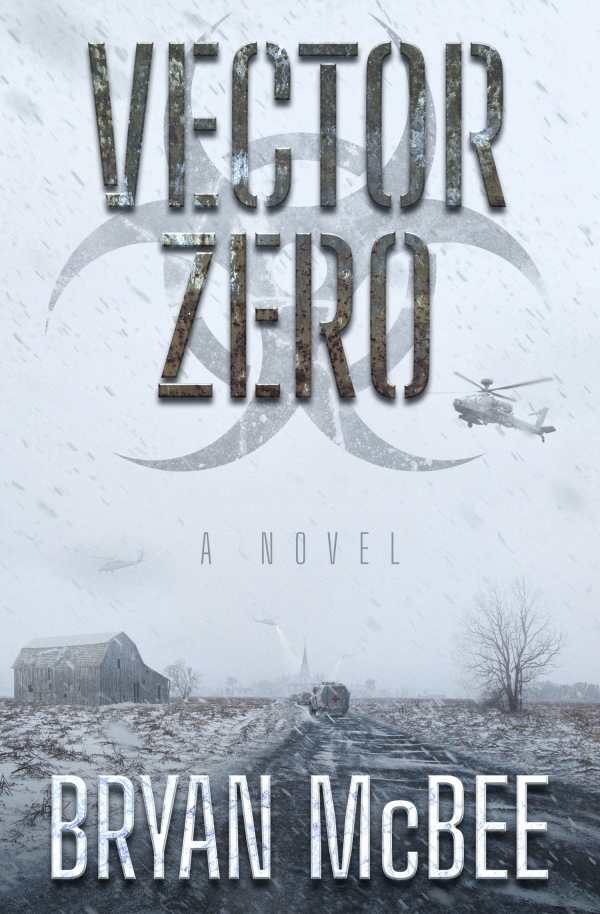Vector Zero
Vector Zero is a gripping thriller in which a small town faces the perfect storm of catastrophes.
In Bryan McBee’s pandemic thriller Vector Zero, a disease threatens a small town.
Shelly, who was abused by a boyfriend, took action to protect herself, after which she left for Harper’s Glen, hoping to achieve a new, quiet, normal life. But in Harper’s Glen, Shelly is taken hostage by Martin, a man on the run from a colonel in the United States Army. Meanwhile, a fast-acting, contagious virus spreads in Harper’s Glen, and a fierce snowstorm delays the town’s receipt of medical assistance and supplies. Chaos increases as the residents fight back against a military quarantine. Shelly isn’t sure what is the most dangerous: the disease, the army, her kidnapper, or the storm. In any case: a battle for power consumes Harper’s Glen.
Throughout the novel, Shelly is developed in terms of how she combats the mental and emotional damage done by her ex; her history is disclosed via intriguing flashbacks that reveal her survival instincts. Outwardly, she acts submissive and dissociated––behavior that helped her to live through her relationship ordeals in the past, and that reemerges in Martin’s presence. Martin, meanwhile, has run from the army through three towns, driven by an inner voice and a belief that he is doing God’s will. The nature of the deadly disease is explained through his conversations with Shelly, unveiling clandestine government research into bioweaponry. He’s a rival of the colonel’s.
Those on the army’s side have perspectives on military life that flesh out the more difficult, dangerous aspects of battle and intramilitary politics. The colonel lives with chronic pain because of a wartime wound; he dreams about the event that led to it. The Harper’s Glen militia, which is led by a man who also sustained injuries in the line of duty, is motivated by his comparable experiences. Through the colonel, the militia leader, and Shelly, the novel draws out themes of PTSD, revealing the US’s inadequate approach to mental health care for veterans and abused women.
The narration trades between characters, increasing its sense of suspense. Many blur the line between good and evil. The full picture is a mystery for much of the story, in which graphic descriptions of townspeople succumbing to the virus prove terrifying, and the blizzard contributes to a sense of peril and isolation. Though the book is masterful at delivering riveting reveals, it is also cut short; its abrupt ending leaves many questions open.
Vector Zero is a gripping thriller in which a small town faces the perfect storm of catastrophes.
Reviewed by
Delia Stanley
Disclosure: This article is not an endorsement, but a review. The publisher of this book provided free copies of the book and paid a small fee to have their book reviewed by a professional reviewer. Foreword Reviews and Clarion Reviews make no guarantee that the publisher will receive a positive review. Foreword Magazine, Inc. is disclosing this in accordance with the Federal Trade Commission’s 16 CFR, Part 255.

